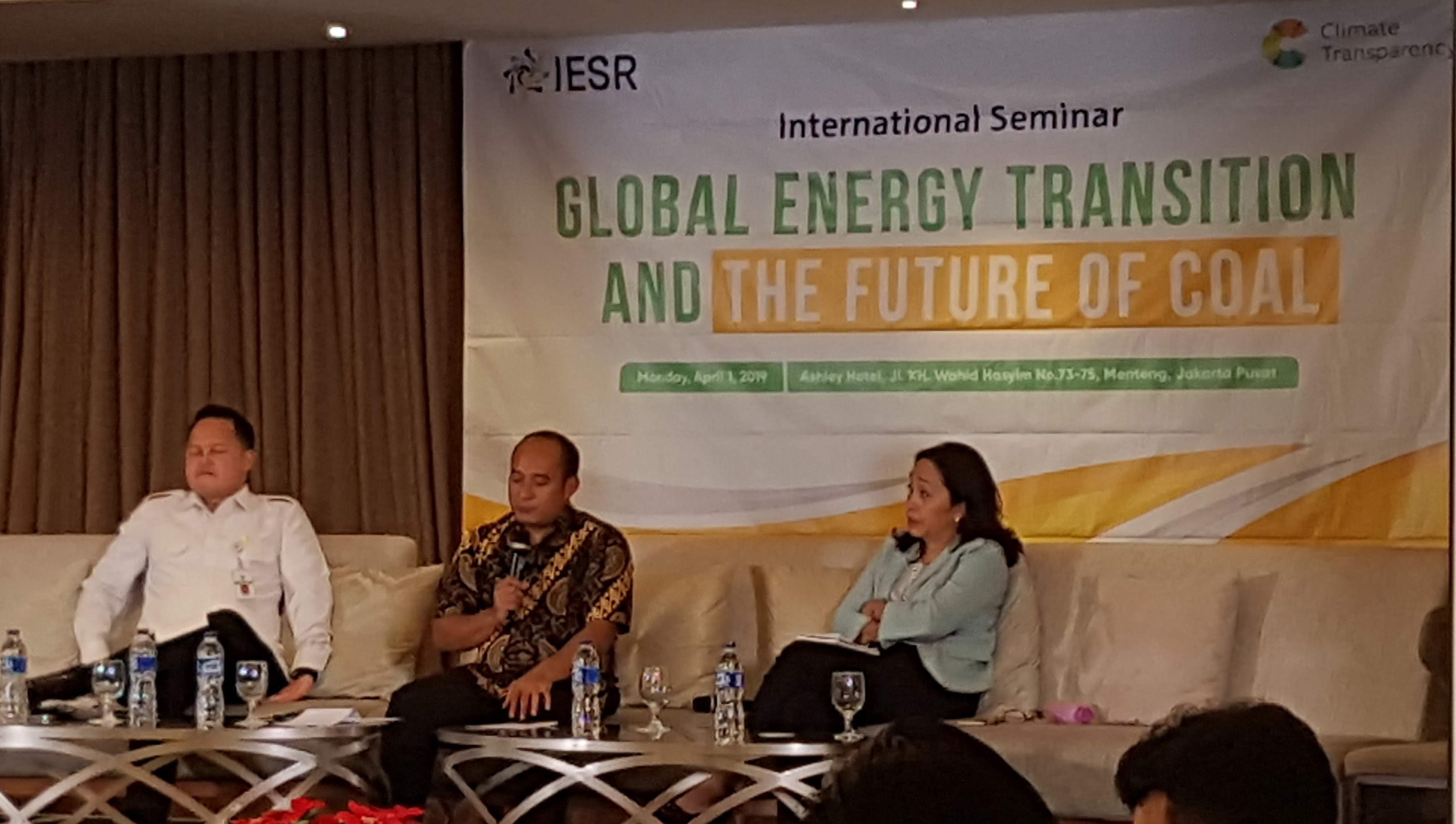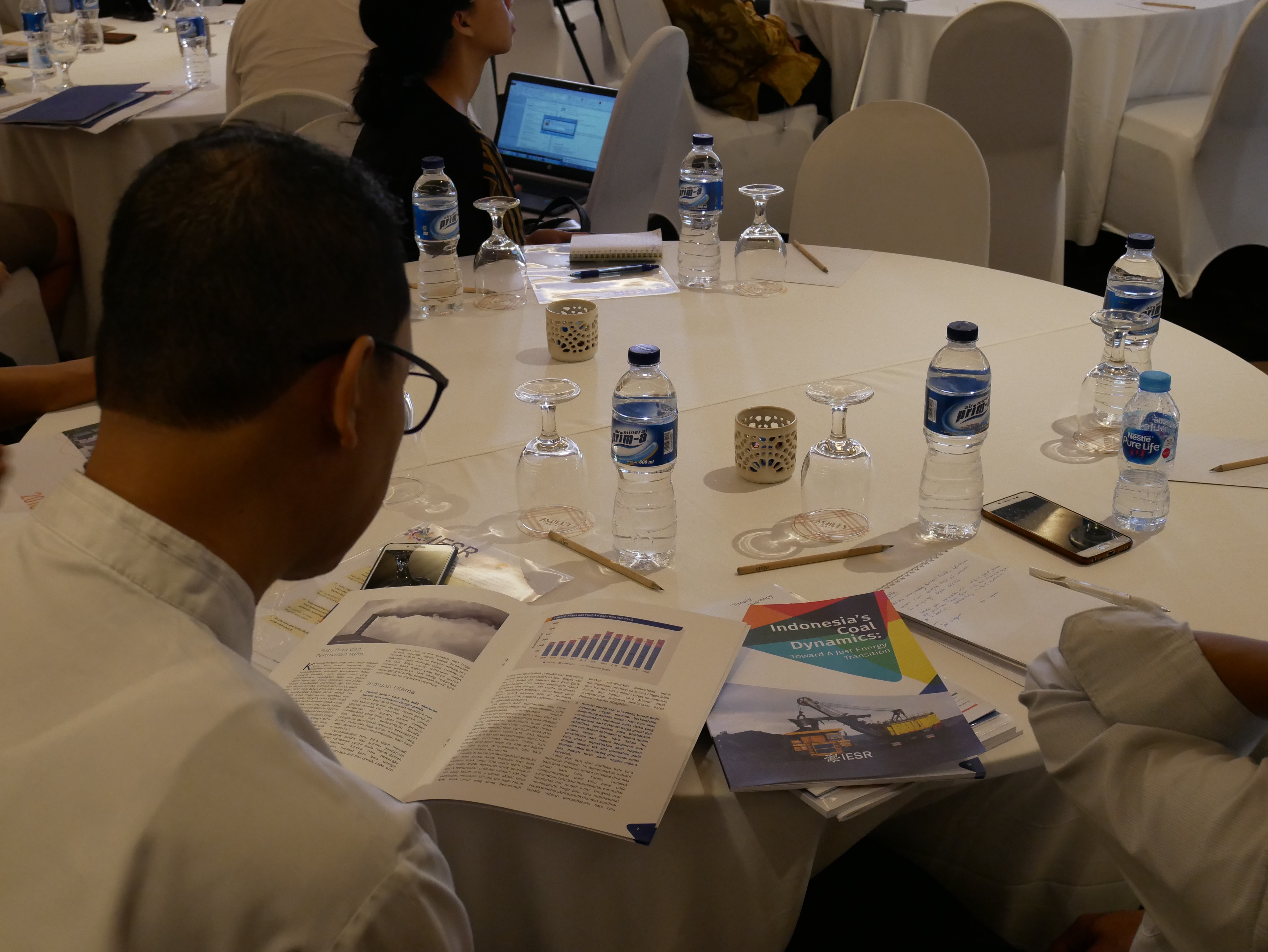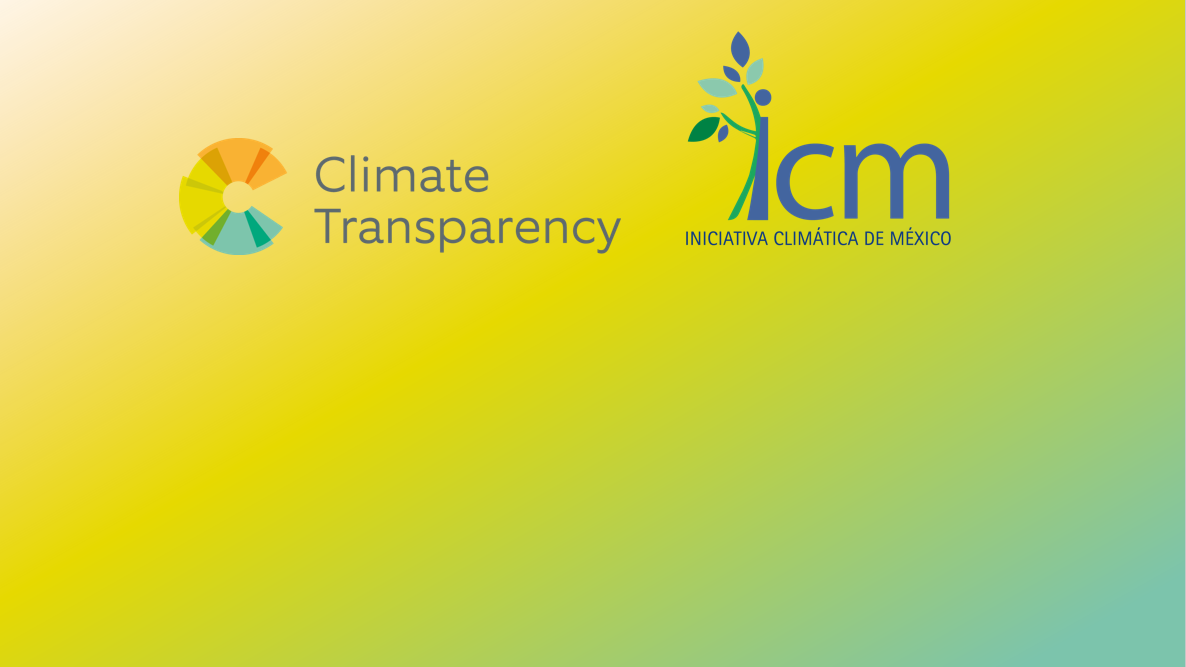The Institute for Essential Services Reform, the Climate Transparency Partner in Indonesia, organised two events: on 1 April an international seminar entitled “Global Energy Transition and Future of Coal” and on 2 April a roundtable discussion “Prospects on Energy Transition in Indonesia Power Sector”, during which the Policy Paper “Indonesia’s Coal Dynamics: Towards a Just Energy Transition” has been presented. Both events took place in Jakarta, Indonesia.
This seminar on 1 April, consisted of three sessions:
1. A Just Energy Transition: Energy, Climate and Economic Development
2. International Experiences on A Just Energy Transition
3. Energy Transition and Climate Change Agenda on G20 Summit
Key findings of the study
Fabby Tumiwa, Executive Director of IESR, opened the first session, by presenting the results of the IESR study. This study highlights Indonesia’s coal dynamics and concludes that coal transition is inevitable. Specifically, the study tried to capture the challenges of the energy transition from the coal industry’s point of view as well as the driving factors for Indonesia to make the energy transition, in particular the transition from coal, possible.
Indonesia faces following challenges, when it comes to energy transition:
– The coal industry is closely related to political interests.
– There are various supports from the government, both financially and in regulations issued, for the coal industry and the coal power plant.
– There are inconsistencies in the implementation of regulations; regulations that have recently enacted tend to encourage coal use as a source of state electricity.
– The provision of financial support, directly or indirectly, can then be categorized as a subsidy from the government.
– Policy makers and power generation companies regard coal as a cheap energy source for state electricity.
Despite many challenges, there are also several factors, which would support Indonesia’s energy transition, namely:
– There are risks involved, when Indonesia’s economy relies on coal exports, given the fluctuating global coal prices and the volatility of global coal demand. The risk is because the trend of coal use in Indonesia’s coal export destination countries will decline in the future.
– Levelized Cost of Electricity (LCOE) from hydropower plant, geothermal, and solar power plant in 2020 will be the same as LCOE from coal power plant with ultra-supercritical technology.
– The inefficiency of coal mining and coal power plant, due to the increasing costs incurred in extracting coal.
During the event, experts representing i.a. the Ministry of Energy and Mineral Resources or the Indonesian Coal Mining Association shared their expertise and opinion on the conducted study. They agreed that Indonesian coal exports will decrease and therefore the local coal industry is being transformed. A representative form the the Ministry of Environment and Forestry said that in the future the emissions number from the coal industry will have to be included in the Indonesia’s National Determined Contribution (NDC), given the potential increase in emissions from the coal industry and the increase in national coal production.
Study in Three Countries: South Africa, India, China
During the second panel, energy transition in other G20 countries has been discussed. Ursula F. Hutfilter from Climate Analytics presented insights about the Paris Agreement as a background for global energy transitions. In particular, energy transition in the electricity sector is significant in achieving the Paris Agreement targets, whereas it must be fully decarbonized before 2050. In other words, the coal use in power plants must be stopped globally before 2050. Alvin Lin from Natural Resources Defense Council said that renewable energy is currently competitive compared to coal in China. Moreover, the Chinese Government has a 5-year plan to reduce coal production capacity by 500 million tons. The steel industry will be affected since then, in which it has to reduce by 150 million tons. The same situation also occurs in India, where renewable energy is already economically attractive in India. Furthermore, Thomas Spencer from The Energy and Resources Institute (India) stated that there is a surplus in coal production capacity in India. The coal transition is also happening in South Africa, where, as mentioned by Bryce McCall from the Energy Research Center in South Africa, trade unions encourage the government to conduct discussion with them regarding the labor transition from the mining sector.
Energy Transition Issues at the G20 Summit
As a partnership that assesses climate action from G20 countries, it is necessary to look at how this energy transition issue is discussed in G20 meetings, including the G20 Summit to be held in Japan on 28-29 June 2019. Muhammad Hadianto Wirajuda from the G20 Sherpa team and Awang Riyadi from the Ministry of Energy and Mineral Resources, the Energy Transition Working Group agreed that green fuel is an alternative form of energy in the process of transitioning energy from fossil fuels to renewable energy. Indonesia will continue to promote green fuel (bio-diesel and green-diesel) at the G20 Summit at the end of June. The context of green fuel here is to promote palm oil as renewable energy.
Conclusions
– Coal transition is multi-dimensional because there is governance, business, technology, welfare and a few other aspects in planning the coal transition.
– A fundamental change, namely ‘paradigm shift,’ is needed to make a coal transition happening. Different stakeholders need to be included in the debate.
– There must be “just” word in planning energy transition because the energy transition affects the economy (national and regional) as well as corporate; it, therefore, has to be planned comprehensively at the macro level.
– Energy transition in Indonesia is inevitable as other countries switch to more carbon-neutral technologies.
Event gallery
1 APRIL
GLOBAL ENERGY TRANSITION AND FUTURE OF COAL
2 APRIL
PROSPECT ON ENERGY TRANSITION IN INDONESIA POWER SECTOR

















